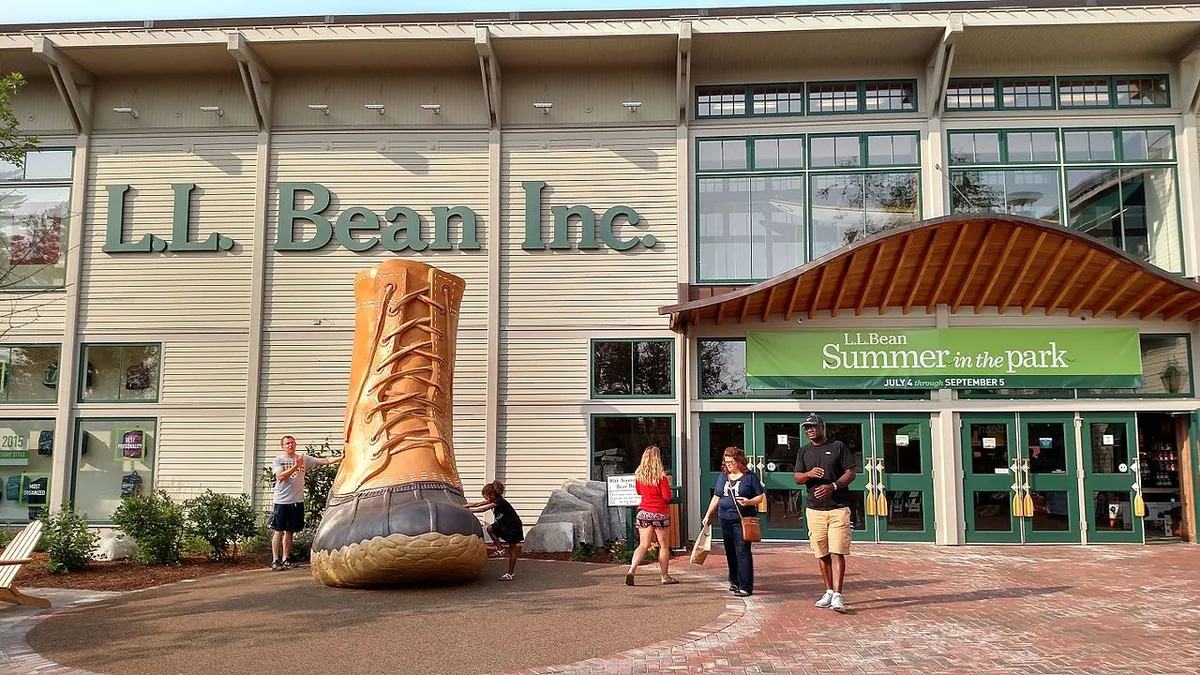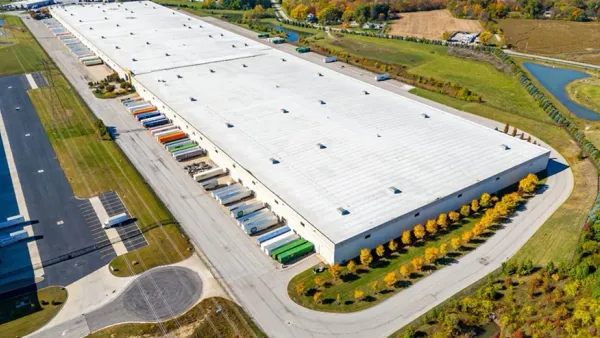Dive Brief:
- L.L. Bean, the hundred-year-old private company lauded for its unlimited return policy for its items for any reason, even without a receipt, has updated said policy to now extend back only one year, the Boston Globe reported.
- The longstanding policy, which had come to help define the Maine-based retailer, had grown too expensive because of customer abuses. Officials stated the company had lost $250 million in the past five years due to returned items, with the quantity of returns doubling during that stretch of time.
- The decision, while deemed necessary in the highly competitive retail space, evoked a cacophony of responses on social media, ranging from rejected allegiance to the scolding of other shoppers for ruining a good thing.
Dive Insight:
The recent decision by L.L. Bean to change the terms of its legendary return policy is driven by economics and consumer behavior, two variables that change over time.
Bean’s aggressive move to capture greater market share with additional retail outlets, free shipping, an expanding web presence and even its own affinity credit card all comes with a calculated cost of customer acquisition and customer retention. Its change in policy was simply an economic one based on a changing customer profile.
The retailer's growth has resulted in a change of what could be considered the "traditional" L.L. Bean customer, to one that seemingly took unfair advantage of Bean’s no questions asked return policy. Bean’s very own customers destroyed one of the differentiators that defined the brand. The greatest impact will be on its loyal and long-term customer base, and that is the danger in this decision. But its business issues started long ago.
Its change in policy was simply an economic one based on a changing customer profile.

Supply Chain Dive
Freeport, Maine based L.L. Bean had a cult following for sporting goods and clothing that appealed to the outdoorsy types and Maine Guides. As a New Englander, I regularly made the two-hour trip to Freeport to walk through L.L. Bean’s original store that never closed, supporting tourists and natives alike, who needed a fly rod, a camping lantern, a wool jacket or even a pair of its legendary boots. For those living in New England, it was a rite of passage to visit the unique store in the middle of the night or on a holiday, even in the dead of winter.
The company was also the leader in pre-internet telephone-based catalog sales. Its customer service is still excellent, and at one time its telephone sales were so important to the region that there was a massive investment in telecommunications. That infrastructure brought in other telephone-dependent businesses, including many large credit card and banking companies.
The Internet has since changed that landscape, but L.L. Bean still primarily depends on locals for customer service, a business service which remains quite strong.
Long-term customers will lament the loss of a company that was more of an old friend than a retailer.

Supply Chain Dive
For years, my wife bought so much from L.L. Bean that she received an annual Christmas card thanking her for her business! Yet, even she, a loyal customer sporting one of those L.L. Bean credit cards, buys far less as of late. Sadly, it has become a "me-too" company, competing with the likes of Patagonia, Mountain Hardware and other high-end brands.
Its flagship store, long distinguished by a trout pond and other interesting attractions, has taken on the look of a mall store, with products found at many other retailers. Freeport itself has turned into an outlet Mecca, driving a different type of customer into the store and certainly reducing my trips.
While the old fashioned L.L. Bean may not have survived in today’s retail marketplace, the new model L.L. Bean is having its own challenges. Newer customers may be critical of the new returns policy, but long-term customers will lament the loss of a company that was more of an old friend than a retailer.














